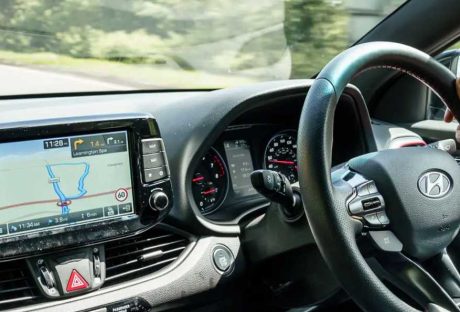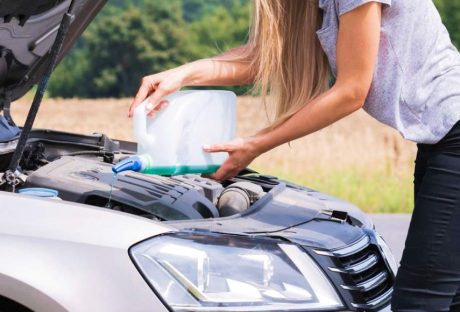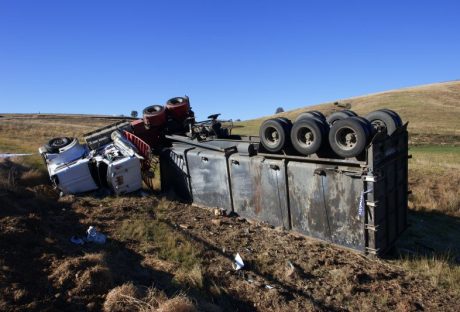Imagine you are in the middle of a long highway, and your car stops working suddenly. There are no towns in sight for hundreds of miles, so there are no pumps and garages either. However, you still have gas in your tank. Do you know why your car wont start after getting gas?
If you wish to prevent such a dreary situation, you must learn the answers to this aforementioned question. Here, I have listed several reasons why this might happen and what you must do to avoid them.
Why Car Wont Start After Getting Gas?
The primary reasons why your car won’t start after getting gas on the engine can vary from person to person. However, for most vehicle owners, these are the most commonly associated reasons:
1. The Battery Is Dead Or Corroded
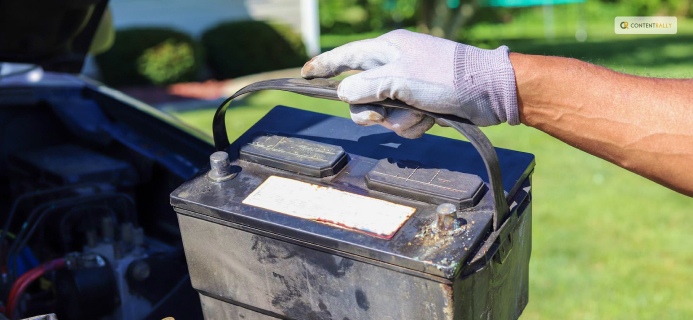
If you don’t see your car running even after you hit the gas, then the car battery is the most common problem that most people face. There is a high chance that your car battery has got depleted over time or its battery terminals have corroded.
As a car driver, you should know that all car batteries have a life of three to five years. There are various ways why your car battery might deplete fast. This includes leaving the headlights on when not driving.
To test this, try charging the battery somehow and testing the alternator together at 12v.
2. The Alternator Is Damaged
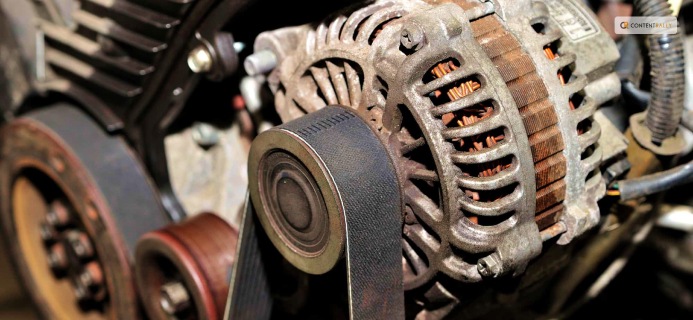
In the previous point, I explained how the battery could be the source of all your troubles. In the end, I explained charging the battery and alternator at 12v.
If you see your battery start functioning properly but still won’t start your car, then you know whom to blame.
For the uninitiated, the alternator is the machine that charges up the battery as the car is running. If it’s damaged, your battery will never be fully charged and will discharge pretty quickly.
Therefore, always keep a multimeter in hand to check the status of your alternator. Use it to test the alternator in two ways. If the readings are lower than these readings, then change your alternator:
- When the engine is off: If the multimeter reading is less than 12v, it’s faulty.
- When the engine is on: If the multimeter reading does not increase more than 12v, it’s faulty.
3. The Fuel Filter Is Clogged
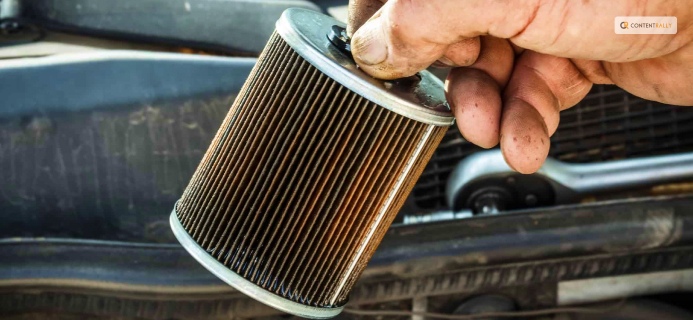
The fuel filter is a car part that is responsible for filtering out contaminants in the fuel reaching the engine. This mainly includes solid particulates like dirt and other debris.
However, since the fuel filter traps all the dirt, it can get clogged with particulates over time. You can understand this by gauging the efficacy of your car. If its mileage and performance decrease suddenly over time, then your filter is clogged.
Therefore, a good practice is to clear out and clean your fuel filter every 25,000 miles.
4. The Fuel Pump Is Defective
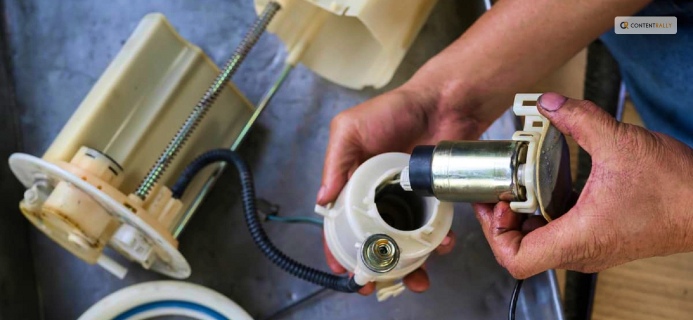
The fuel pump is one of the most important machines that help turn your car. The fuel pump helps in pumping your engine full of fuel from your fuel tank. Therefore, if your car is not starting, it could be that the engine is not getting any fuel due to a damaged fuel pump.
Your car’s fuel pump can get damaged over time due to the heat of the car engine, which is always situated close to it. If you think your fuel pump is at fault here, then you can start by checking its pressure using a fuel gauge.
This is another pretty common reason as to why your car wont start after getting gas.
5. There Are Defects In The Starter Motor/Circuit
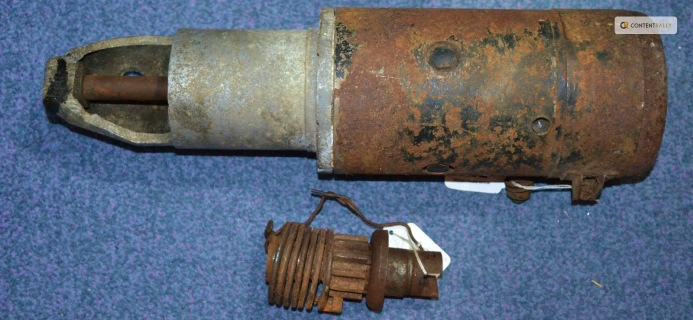
The starter motor or circuit is responsible for turning or revving your engine. Therefore, whenever you press the ignition button, the starter turns your engine, which in turn makes your car accelerate.
Therefore, if your car is not starting even though it has gas, your starter motor can be at fault here. This can happen because it may have a solenoid. On the other hand, it can be because of a faulty ignition switch as well.
If this is the case, then you need to get a mechanic to repair it. Repairing the starter motor can cost up to $360.
6. There Is Not Enough Spark
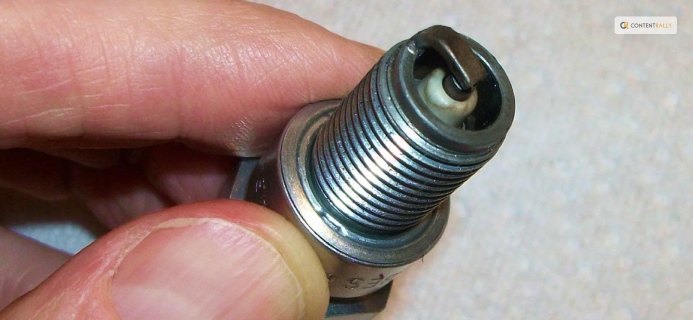
If you have a petrol engine, then your car will definitely have spark plugs inside. These plugs are responsible for igniting the oil in the engine, which then helps it run.
If you notice your engine misfiring a lot when starting up, then your spark plugs are to blame. Getting them changed based on the recommendations of the car manual.
How To Fix This Issue?

If your car struggles to start after putting gas in, then there is an issue with the parts explained above. Therefore, to fix this issue and get your car and yourself back on track, there is a pretty simple fix. This is what you need to do, in a step-by-step fashion, as described below:
1. First, try starting the car engine and again until it starts working.
2. Next, you can try opening the car hood and checking all the wires attached to the car battery. If you see any of the fires disconnected, try connecting them (only if you know how to).
Apart from doing these two actions, there is nothing much that you can do. If you see your car remain still after performing these two actions, then you need to contact the nearest garage or mechanic around you.
If you are stranded in the middle of a road or on a highway, then you should keep the numbers of various garages and mechanics handy. A call to a mechanic or garage will solve your problem quickly if you can’t tow it to the closest one.
Frequently Asked Questions (FAQs):
People ask lots of questions regarding why their car wont start after getting gas. Here are my answers to their questions:
Ans: There can be two reasons why your car sputters after getting gas on it. The two reasons are:
Your EVAP control valve is damaged.
You are using the incorrect fuel for your engine or a low-quality one.
Ans: Bad gas refers to the residual fuel in your engine that has not burnt completely. Over time, this gas can get stuck to the motor and the fuel pump. If this happens, then your car will not function properly.
Conclusion
There are many reasons why your car wont start after getting gas. These reasons include damaged batteries, starters, fuel pumps, spark plugs, and fuel filters. The only solution to this problem is to have any broken parts fixed. Therefore, to keep it working at its best, have your automobile checked out and serviced on a regular basis.
Read Also:
- What Type Of Vehicle Is Ideal For Off-Road Driving?
- 7 Ways to Find the Best Auto Repair Shop for Your Vehicle
- Car Shakes At Idle But Smooths Out While Driving – How To Fix This Problem?














